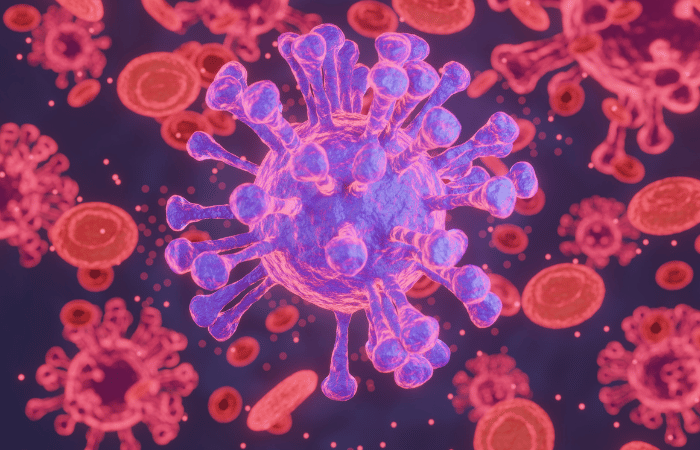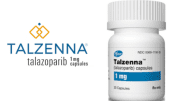Rare autoimmune disorder myasthenia gravis treated by CAR-T therapy
July 2023: Evidence from a small-scale clinical trial shows that myasthenia gravis, an autoimmune disorder of the nervous system, could be treated with a variation of CAR-T, an advanced blood cancer immunotherapy. The modified CAR-T treatment, which stands for chimeric antigen receptor T-cell, was used by scientists. It could reduce myasthenia gravis symptoms for a longer time and didn’t cause any major side effects. The study, which was published in The Lancet Neurology, was paid for by a small business grant from the National Institute of Neurological Disorders and Stroke (NINDS), which is part of the National Institutes of Health. The grant was given to Gaithersburg, Maryland-based company Cartesian Therapeutics.
Using a groundbreaking therapy like CAR-T to potentially treat a neurological disorder shows how flexible immunotherapies can be when there are few or no other treatment options,” said Emily Caporello, Ph.D., head of the NINDS Small Business Programme.
Myasthenia gravis is a long-term autoimmune disease that happens when the body’s immune system attacks a protein found where nerve cells talk to muscles. The disease is characterised by muscle weakness that gets worse when the person is active and sometimes gets better when the person rests. The main goal of the treatments we have now is to reduce symptoms, especially muscle weakness.
In the study, 14 people with generalised myasthenia gravis were given different amounts of Descartes-08, a modified form of CAR-T therapy that targets the cells that make the antibodies that cause myasthenia gravis. The best dose was found to be one pill once a week for six weeks. Early information about how well the treatment works is encouraging, but more clinical tests are needed to determine how well it works. Three people who took Descartes-08 had all or almost all of their symptoms go away. These effects lasted for six months after treatment. Two others no longer needed treatment with intravenous immunoglobulin that is given to some people with serious MG.
Murat V. Kalayoglu, M.D., Ph.D., president and CEO of Cartesian Therapeutics, said, “We saw deep, long-lasting responses to Decartes-08 that lasted at least six months after treatment.” “We have now started a larger randomised, placebo-controlled study, which is the first of its kind for an engineered adoptive cell therapy.”
In CAR-T therapy, a patient’s T-cells are reprogrammed to fight a specific target. T-cells are a key part of the immune system that can find and kill invading pathogens. With blood cancers, the cancer itself is now the new target. For myasthenia gravis, the goal is to kill the bad cells that make the antibodies that cause damage.
Many immunotherapies, including CAR-T, can cause major side effects that, while tolerable in cases of advanced cancer, make it impossible to use in cases of myasthenia gravis and other long-term conditions. T-cells are usually changed by DNA, which stays in the cell and gets copied every time the cell divides. This can make the action stronger and cause dangerous side effects.
Descartes-08 doesn’t use DNA to change T-cells because DNA copies itself when cells divide. Instead, it uses messenger RNA (mRNA), which doesn’t copy itself when cells divide. The result is a short treatment period that is given more than once instead of a single dose, which is how DNA-programmed CAR-T therapy usually works. The main goal of this study was to find the right dose of Descartes-08 to reduce muscle weakness symptoms while causing as few side effects as possible.
In a larger clinical trial, Descartes-08 therapy is now being tried to see if it can help reduce the symptoms of myasthenia gravis. Importantly, there will also be a placebo group in this study. This is an important control to make sure that any improvement seen is due to the treatment and not something else.
Dr. Nishant Mittal is a highly accomplished researcher with over 13 years of experience in the fields of cardiovascular biology and cancer research. His career is marked by significant contributions to stem cell biology, developmental biology, and innovative research techniques.
Research Highlights
Dr. Mittal's research has focused on several key areas:
1) Cardiovascular Development and Regeneration: He studied coronary vessel development and regeneration using zebrafish models1.
2) Cancer Biology: At Dartmouth College, he developed zebrafish models for studying tumor heterogeneity and clonal evolution in pancreatic cancer.
3) Developmental Biology: His doctoral work at Keio University involved identifying and characterizing medaka fish mutants with cardiovascular defects.
4) Stem Cell Research: He investigated the effects of folic acid on mouse embryonic stem cells and worked on cryopreservation techniques for hematopoietic stem cells.
Publications and Presentations
Dr. Mittal has authored several peer-reviewed publications in reputable journals such as Scientific Reports, Cardiovascular Research, and Disease Models & Mechanisms1. He has also presented his research at numerous international conferences, including the Stanford-Weill Cornell Cardiovascular Research Symposium and the Weinstein Cardiovascular Development Conference.
In summary, Dr. Nishant Mittal is a dedicated and accomplished researcher with a strong track record in cardiovascular and cancer biology, demonstrating expertise in various model systems and a commitment to advancing scientific knowledge through innovative research approaches.
- Comments Closed
- July 22nd, 2023






AChR antibody eradication, autoimmune application of cancer therapy, autoimmune disease CAR T, B-cell depletion autoimmunity, CAR T for rare disorders, CAR T therapy myasthenia gravis, Cartesian Therapeutics, CD19-targeted MG treatment, neuromyelitis optica treatment breakthrough
CancerFax is the most trusted online platform dedicated to connecting individuals facing advanced-stage cancer with groundbreaking cell therapies.
Send your medical reports and get a free analysis.
🌟 Join us in the fight against cancer! 🌟
Привет,
CancerFax — это самая надежная онлайн-платформа, призванная предоставить людям, столкнувшимся с раком на поздних стадиях, доступ к революционным клеточным методам лечения.
Отправьте свои медицинские заключения и получите бесплатный анализ.
🌟 Присоединяйтесь к нам в борьбе с раком! 🌟